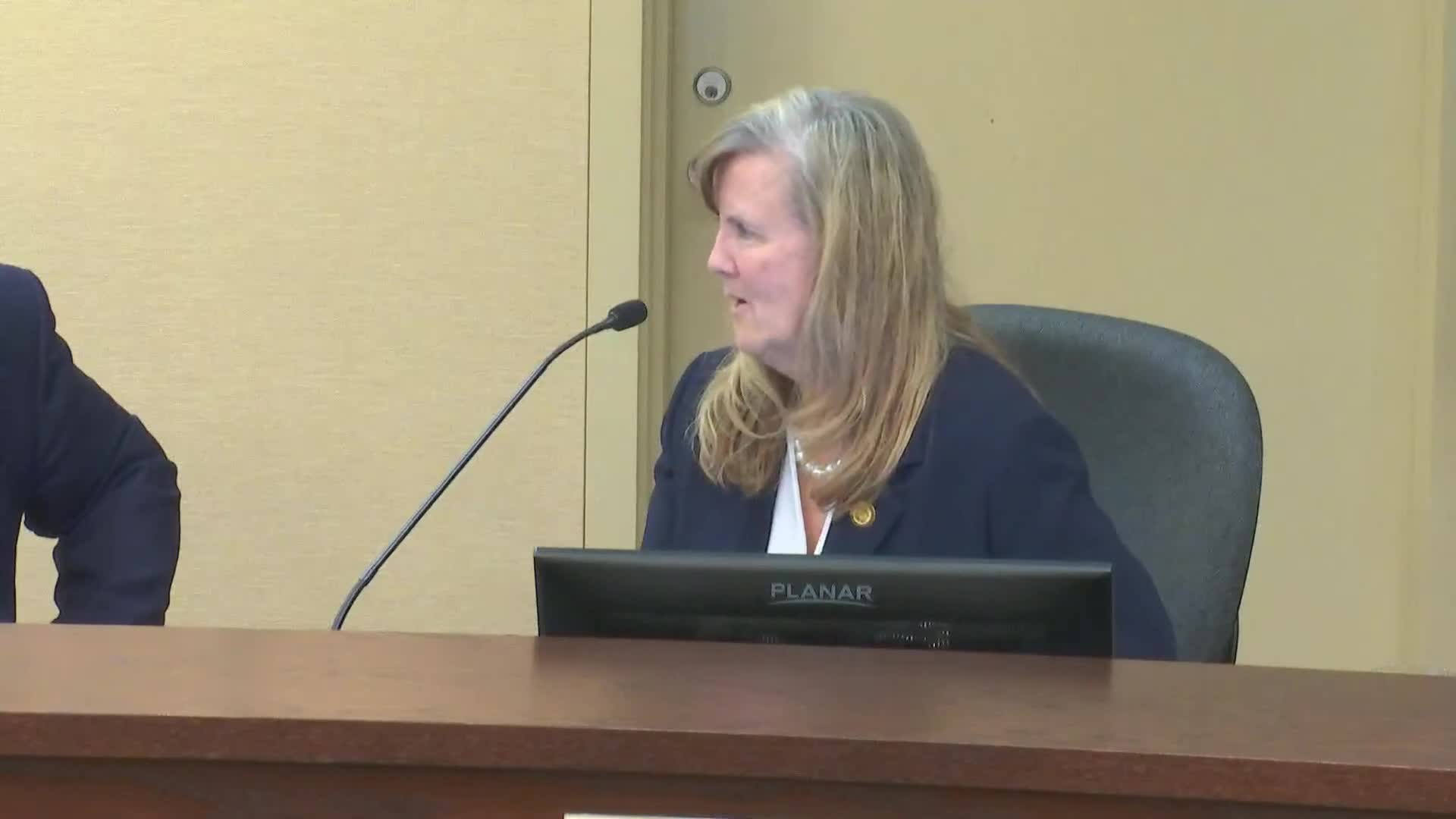County expands household hazardous‑waste lithium battery drop‑off and safety measures
October 17, 2025 | East Consolidated Zoning Board, Johnson County, Kansas
This article was created by AI summarizing key points discussed. AI makes mistakes, so for full details and context, please refer to the video of the full meeting. Please report any errors so we can fix them. Report an error »

Johnson County Health and Environment officials briefed the Board of County Commissioners on expanded household hazardous‑waste (HHW) services for lithium batteries and new facility safety upgrades intended to reduce fire risk.
Trent Thompson, environmental program manager, said lithium batteries — increasingly common in consumer devices — are water‑reactive when damaged and can undergo thermal runaway that results in difficult‑to‑extinguish fires. He said lithium battery volumes are rising nationally and should not be placed in household trash or curbside bins.
The county’s HHW facility has adopted Section 320 of the International Code Council guidance for lithium battery storage and has upgraded its emergency action plan, operating procedures and fire suppression equipment. The facility now uses Class D extinguishers for metal fires and electrical‑rated storage systems. Thompson said the HHW operations accept damaged or recalled lithium batteries at any time during normal operating hours without an appointment and accept non‑damaged lithium batteries on scheduled drop‑off days (Mondays, Wednesdays and Thursdays). Regular HHW appointments are still required for other hazardous materials.
Commissioners and staff discussed common household sources of lithium cells (including hearing aids and phones), the consequences of improper disposal and landfills reporting increased fire incidence. Thompson recommended residents consult regional HHW resources and the RecycleSpot.org listings to find convenient drop‑off options.
Why it matters: Damaged lithium batteries are a growing fire risk to homes and solid‑waste facilities. The county’s updated procedures and expanded acceptance windows aim to make safe disposal more convenient and reduce accidental fires in residences and at disposal sites.
What’s next: The health department will continue public education on safe battery disposal and coordinate with other regional HHW locations to provide convenient options for residents.
Trent Thompson, environmental program manager, said lithium batteries — increasingly common in consumer devices — are water‑reactive when damaged and can undergo thermal runaway that results in difficult‑to‑extinguish fires. He said lithium battery volumes are rising nationally and should not be placed in household trash or curbside bins.
The county’s HHW facility has adopted Section 320 of the International Code Council guidance for lithium battery storage and has upgraded its emergency action plan, operating procedures and fire suppression equipment. The facility now uses Class D extinguishers for metal fires and electrical‑rated storage systems. Thompson said the HHW operations accept damaged or recalled lithium batteries at any time during normal operating hours without an appointment and accept non‑damaged lithium batteries on scheduled drop‑off days (Mondays, Wednesdays and Thursdays). Regular HHW appointments are still required for other hazardous materials.
Commissioners and staff discussed common household sources of lithium cells (including hearing aids and phones), the consequences of improper disposal and landfills reporting increased fire incidence. Thompson recommended residents consult regional HHW resources and the RecycleSpot.org listings to find convenient drop‑off options.
Why it matters: Damaged lithium batteries are a growing fire risk to homes and solid‑waste facilities. The county’s updated procedures and expanded acceptance windows aim to make safe disposal more convenient and reduce accidental fires in residences and at disposal sites.
What’s next: The health department will continue public education on safe battery disposal and coordinate with other regional HHW locations to provide convenient options for residents.
View full meeting
This article is based on a recent meeting—watch the full video and explore the complete transcript for deeper insights into the discussion.
View full meeting
